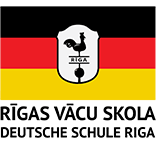Whoever said you can’t make money playing video games clearly hasn’t taken a look at Unity Software’s stock price.
On its first official day of trading, the company rose more than 31%, opening at $ 75 per share before closing the day at $ 68.35. Unity’s share price gains came after last night’s pricing of the company’s stock at $ 52 per share, well above the range of $ 44 to $ 48 which was itself an upward revision of the company’s initial target.
Games like “Pokémon GO” and “Iron Man VR” rely on the company’s software, as do untold numbers of other mobile gaming applications that use the company’s toolkit for support. The company’s customers range from small gaming publishers to large gaming giants like Electronic Arts, Niantic, Ubisoft and Tencent.
Unity’s IPO comes on the heels of other well-received debuts, including Sumo Logic, Snowflake and JFrog .
TechCrunch caught up with Unity’s CFO, Kim Jabal, after-hours today to dig in a bit on the transaction.
According to Jabal, hosting her company’s roadshow over Zoom had some advantages, as her team didn’t have to focus on tackling a single geography per day, allowing Unity to “optimize” its time based on who the company wanted to meet, instead, of say, whomever was free in Boston or Chicago on a particular Tuesday morning.
Jabal’s comments aren’t the first that TechCrunch has heard regarding roadshows going well in a digital format instead of as an in-person presentation. If the old-school roadshow survives, we’ll be surprised, though private jet companies will miss the business.
Talking about the transaction itself, Jabal stressed the connection between her company’s employees, value and their access to that same value. Unity’s IPO was unique in that existing and former employees were able to trade 15% of their vested holdings in the company on day one, excluding “current executive officers and directors,” per SEC filings.
That act does not seemed to have dampened enthusiasm for the company’s shares, and could have helped boost early float, allowing for the two sides of the supply and demand curves to more quickly meet close to the company’s real value, instead of a scarcity-driven, more artificial figure.
Regarding Unity’s IPO pricing, Jabal discussed what she called a “very data-driven process.” The result of that process was an IPO price that came in above its raised range, and still rose during its first day’s trading, but less than 50%. That’s about as good an outcome as you can hope for in an IPO.
One final thing for the SaaS nerds out there. Unity’s “dollar-based net expansion rate” went from very good to outstanding in 2020, or in the words of the S-1/A:
Our dollar-based net expansion rate, which measures expansion in existing customers’ revenue over a trailing 12-month period, grew from 124% as of December 31, 2018 to 133% as of December 31, 2019, and from 129% as of June 30, 2019 to 142% as of June 30, 2020, demonstrating the power of this strategy.
We had to ask. And the answer, per Jabal, was a combination of the company’s platform strength and how customers tend to use more of Unity’s services over time, which she described as growing with their customers. And the second key element was 2020’s unique dynamics that gave Unity a “tailwind” thanks to “increased usage, particularly in gaming.”
Looking at our own gaming levels in 2020 compared to 2019, that checks out.
This post closes the book on this week’s IPO class. Tired yet? Don’t be. Palantir is up next, and then Asana .
































